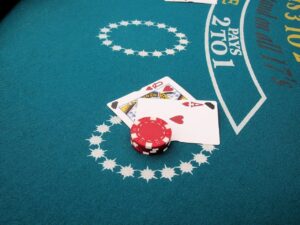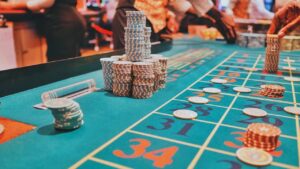Factors that Lead to Compulsive Gambling

Gambling can be fun but comes with certain health concerns like gambling disorders. You might have seen people who are continuously into gambling and betting. They are so addicted to it that they cannot concentrate on things other than gambling. But do you know what this gambling addiction is termed? It is called compulsive disorder.
Compulsive gambling is a disorder one faces when gambling is overdone. But certain factors may lead to compulsive gambling. Today in this blog, we will understand what compulsive gambling is and the 5 factors that lead to it.
What is compulsive gambling?
Compulsive gambling is a gambling disorder where a person has an uncontrollable urge to stay practicing gambling by putting one’s life in danger. It is a serious life-threatening issue and can be challenging. Here they will use savings to keep chasing the bets they lose. When a person is under this condition, he/she uses illegal ways like stealing and committing fraud to support their addiction. You will also notice a change in their behavior which they try to hide. Mostly these people seek out the adrenaline rush associated with taking risks and winning big. People going through this may have cognitive distortions where they believe they can win back their losses or have a lucky streak and will face certain personality traits where they feel the need for excitement overboard.
5 Factors that lead to Compulsive gambling
- Genetics
Genetics can be one factor that leads to a person’s likelihood of developing a gambling addiction. Individual family history of gambling problems can be a reason for an individual to develop a compulsive gambling disorder. Age can also be a factor that can lead to this disorder, and it is most commonly seen in younger and middle-aged people who play various games like Roulette, Poker,Judi bola, etc.
- Brain chemistry
Sometimes changes in brain chemistry can also lead to compulsive gambling. When you get addicted to gambling, your brain circuits activate, just like when you are high on drugs like cocaine and heroin. The brain’s chemistry gives you a sense of pleasure and reward that can be addictive. Maintaining your mental health by seeking doctors’ help is very important to control these changes in your brain.
- Psychological
If you are facing conditions such as depression or anxiety, this may lead to compulsive gambling as one might feel that gambling might help you keep away from depression. Taking a doctor’s consultation is important to get over your depression. Sometimes impulsiveness can also lead to gambling addiction as people here seek high levels of competitiveness.
- Financial problem
One may be stressed about debt, unemployment, or financial insecurities and feel gambling is the easiest way to escape their problems or make money. To make it clear, gambling is not the right place to make money, but here comes the risk instead of losing money. Sometimes you may get influenced by others and get into gambling which is not right.
- Social factors
Social factors such as peer pressure, childhood trauma, influence by others to access gambling venues, and exposure to its advertisements can also contribute to the development of gambling addiction. Other social factors like family dysfunction and abuse are also associated with gambling addiction that is most commonly seen in teens.
Conclusion
Compulsive gambling can lead to a high risk for one’s health if overdone. It becomes like a drug addiction when you keep doing it. It is important to set a limit while gambling so that you do not suffer from compulsive gambling. Considering factors such as genetics, brain chemistry, physiological, social, and financial problem helps you find the exact reason for gambling addiction so that you can get professional treatment accordingly.






